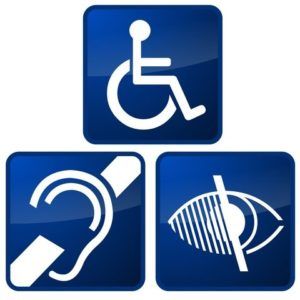How Do They Test for Alcohol?
- How does a fuel cell work?
- What do they test for?
- What are some of the approve alcohol testing devices in North Carolina?
- What is Continuous Alcohol Monitoring?
- What is SCRAM?
- What is the alcohol ankle bracelet?
If you’re looking for a North Carolina DWI lawyer, we’re here to help – Bill Powers

LEARN MORE: What to Do When You Receive a Traffic Ticket

Modified Transcription Below for the Hearing Impaired
Modified Transcript of “How Do They Test for Alcohol?” for the Hearing Impaired
Hi, I’m Bill Powers and I’ve got some of my ultra-dork scientific equipment that we use in North Carolina.
I have somewhat of a scientific background, I enjoy the science behind breath testing and blood testing devices.
In order to understand better how they work, I bought them. In fact, I throw out an open challenge there. I don’t care if you’re law enforcement, prosecutor, judge or expert.
I want to see who has more different devices from different manufacturers and unworkable devices than me in North Carolina.
I don’t think there is anybody but I throw that challenge out there.
Right now, I’d like to talk to you about the SCRAM device. Some people refer to it as the CAM device, SCRAM as it’s written across the front. It stands for Secure Continuous Remote Alcohol Monitoring.
As you might imagine, CAM is Continuous Alcohol Monitoring.
This is the ankle bracelet that you wear on the ankle of your choice.
It uses an electro-chemical fuel cell meaning that it measures alcohol in your system with a similar, not necessarily the same fuel cell, but a similar fuel cell as the Alco-Sensor or the Alco-Sensor FST or the Intoximeter ECIR2.
In fact, the EC in the name of the device stands for electro-chemical, IR stands for infrared.
You wear this bracelet, normally it’s worn related to showing that you’re not drinking alcohol 24 hours a day, seven days a week. I’m not endorsing any particular manufacturer, I’m talking about the logic between the device itself.
I’m a fan of this, primarily, because if we’re trying to rid ourselves of some of the ails, no pun intended, but the ails of drinking or the bad parts of having alcohol in your system, monitoring 24 hours a day with a device that measures overtime, over a long periods of time, is both, from a policy standpoint and a scientific standpoint, is more reliable.
If you get a single reading on the device that you blow into your car to start your vehicle, ignition interlock device, this is the one made by Monitech, that’s one reading.
Maybe it’s two. This thing measures you 24 hours a day, seven days a week. It doesn’t just measure alcohol, it measures skin temperature and skin density.
I know how these devices work and I have the manufacturers, I don’t get paid by the way to do this, they provide these devices to me free of charge and I wear them.
I’ve worn them for a long period of time both to understand the science to see if it’s a reliable science and also, there’s an experiential value meaning that I’ve had the experience of wearing one of these things 30 days, 40 days, 60 days and I can empathize with my client.
These also can be used in civil cases. We’re seeing this increasingly.
On an increasing basis, I think, judges are starting to realize the value of them.
In civil cases, particularly family law cases, where the parents of a child, one accuses another of having an issue with drinking or driving around with the kid in the car, whatever, acting badly when they’ve consumed alcohol.
You could see judges say, “Well, if you’re going to do visitation, I don’t want you to have any alcohol in your system. In order to get increased visitation or have visitations not supervised, wear one of these.”
Not terribly popular, no one particularly wants to wear one of these things.
I’m not going to lie to you, it’s not terribly heavy but it’s not something that you would prefer to wear if you didn’t have to. If it’s a choice between you seeing your child or in some instances, in criminal court for DWI, if you wear it long enough, you may not have to do some jail time on a higher level DWI, heck, wear an ankle bracelet.
There is a charge with it, they’re not cheap. They’re, right now, about $10, $12 a day to wear them.
That’s the CAM device or the SCRAM device. This is the Alco-Sensor. That’s the Alco-Sensor 3 and this is the Alco-Sensor FST and this is the ignition interlock device.
All these devices I just showed you, excluding the old-fashioned breathalyzer, even the ones you can buy online on Amazon or eBay, use an electro-chemical fuel cell. They measure, like a battery, the ethyl-alcohol, coming out of your breath.
I say it’s like a battery because it creates electrical current based on the atomic structure of ethyl-alcohol.
I’ve got a one hour PowerPoint presentation on this, I got a three hour PowerPoint presentation on this, and I teach the science behind Driving While Impaired as well as the devices and the science behind the devices.
If you would like me to come to your school, if you would like me to come to your workplace, if you’re a judge, if you’re a prosecutor, if you’re a defense lawyer association, I’ll bring all of my fun little toys and I’ll show you how they work so that when we’re in court, we all are speaking the same language and we’re understanding what does work and doesn’t work.
Just because you have some level of training on these devices, it doesn’t necessarily mean that you’ve rolled up your sleeves and dug into it.
For the record, while I don’t endorse any of the major manufacturer or products in North Carolina, the approved devices, I will specifically not endorse or unendorse or actively encourage you not to buy.
I think this one was $7 where it fits on the bottom of your … This one’s an iPhone-related one but it’s not really worth the $7. When you have any question about whether you’d be arrested for Driving While Impaired, I would not rely on this whatsoever.
Now, people ask me all the time and I’m not trying to be a Smarty Marty but I’m making a point, “What’s the best way to avoid a Driving While Impaired in North Carolina?”
The answer is don’t drink and drive.
If you have any question whatsoever, whether you’re even close to a legal limit which the limit is .07999 for alcohol, don’t drive. Uber it, get a cab, have a friend pick you up.
I promise you, it’s less expensive and less painful than sitting in this office right here talking to me. I’d rather not have your business than have you take a chance of hurting yourself or someone else.
I don’t say it from a judgmental standpoint at all, we all make mistakes but when it comes to these little devices, and I don’t mean any offense by the manufacturer, it’s just they’re not reliable to any level.
Even the more expensive ones, some of these things are approaching a thousand dollars, even they are imperfect.
Any device that’s created by the human hand is subject to some level of error. If you happen to have, for sale, any of these devices, I may buy it from you. I collect them, I’ve got a bunch of the old breathalyzers. I give them away to people sometimes when I’m training them.
Give me a call and if you like me to teach at a seminar or something, give me a call as well, I do it free of charge. 704-342-4357. That’s 704-342-HELP.
As another online resource, if you want to go online, there’s an app by SlideShare, I think it’s linked with, technically, LinkedIn, it may be the same company.
If you type in or Google, SlideShare North Carolina DWI Quick Reference Guide or NCDWI Quick Reference Guide.
Our most recent version is 2017, just came out, all these devices, the manufacturers, their contact information, the approved devices, the administrative code and some relevant statutes, it’s all there online and we also have it in a paperback form as well. 704-342-HELP and thanks for listening to me.
 Carolina Law Blog
Carolina Law Blog